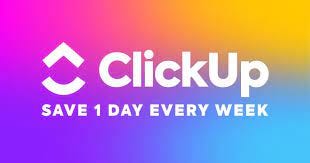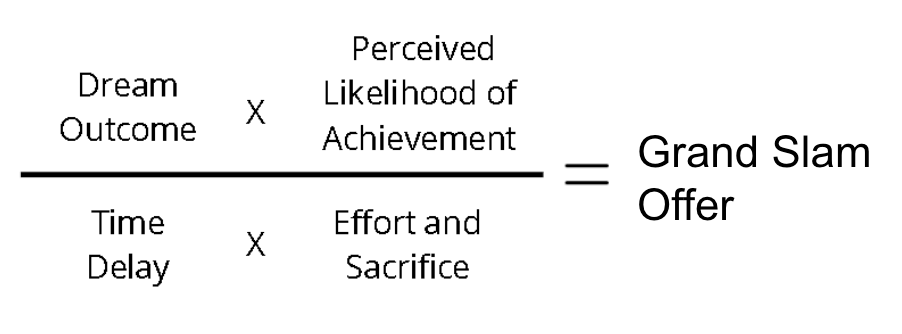How to Craft a Compelling Offer That Buyers Can't Say No To
Learnings from Alex Hormozi's Book, $100M Offers"
📣 Announcements
I’m offering a 10% referral bonus (up to $1,000) if you refer someone who needs a ChatGPT app built to All-In Consulting.
Have them mention your name, and I’ll reach out when the deal closes.I’ll be on vacation this week so no issue next Tuesday.
Newsletter to resume two weeks from now on 8/29/23.
I’ve been taking a lot of intro sales calls with clients the last few months.
But my close rate was very low (in the single digits), and I felt there was something wrong with how I was handling sales calls.
So I carved out some time the last few weeks to do some reading into how to be a better salesperson.
And there was one theme that kept cropping up throughout my sales research, which was the importance of crafting a compelling offer.
In this article, I’ll summarize my learnings about offers from Alex Hormozi’s book, “$100 Million Dollar Offers” including:
what an offer is
elements of a compelling offer and
how to improve your offer so that buyers can’t say no
What is An Offer?
An offer is a proposal for how you will do business with a customer.
For example, some of the many offers that I’ve made before include:
Project-based engagements based on deliverables (eg building an MVP)
Time-based engagements (eg monthly retainers or hourly calls)
Value based engagements (ie getting paid on commission)
Free 30-minute intro call before the paid engagement
Offering to architect their product
Offering referral bonuses
Fractional CTO services
Engineering Consulting
Positioning myself as a software agency
Positioning myself as a dev shop
And more.
The way you craft your offer is important because the same product positioned with different offers could lead to vastly different results.
For example, I run a software engineering consultancy called All-In Consulting, and I’ve noticed that some clients balk at paying for a “paid discovery” phase before I move into actually building their software.
But I’ve noticed that if I position the discovery phase as:
a “vision to paper phase”
a “credit” for implementation or
the first “milestone” we try to hit for implementation
then clients are more likely to agree, even though technically there is no difference.
In this case, having clients view the initial investigation as a “stepping stone” for their final product was more compelling than viewing it as a separate phase, and it helped increase my close rate.
Furthermore, offers are important because if you craft the right offer, you don’t even have to do any sales.
As Alex Hormozi puts it, “the key to sales is making an offer so good people will feel stupid saying no.”
So if you have an offer that’s really compelling, it practically sells itself.
But how exactly do you craft an offer like this?
The Four Keys of a Good Offer
All good offers have four things in common. They:
Speak to the dream result the client is looking for
Increase the certainty that they will get their dream result
Decrease the amount of time it takes to get value
Decrease the amount of effort or sacrifice needed to get it.
Hormozi describes this in the equation below:
With this framework, we can evaluate every offer based on these four dimensions to see how we can improve an offer to the point that clients will always say yes.
For example, let’s say you’re a career coach, and you’re offering 12 week coaching packages where you meet with a client once a week to talk about their career goals.
Do you think this is a compelling offer that is a “no-brainer” to sign up for?
Using the value equation above, let’s analyze this offer and see how we can improve it.
Dream Result
When someone signs up for career coaching, their dream result isn’t 12 meetings with the coach.
Their dream result is getting promoted or getting a raise faster.
So this means this offer could already be improved by mentioning the dream result in it like “Get a 10% raise or more”.

Certainty
With the current offer, there is no certainty that the client will achieve their dream result.
The only thing certain is that they get 12 hours of coaching.
So this offer could be improved if the offer included some guarantees, like “you only pay if I get you the raise,” or “your money back guaranteed if you don’t get the raise.”
Time to Value
It’s unclear in this offer when they will get the promotion or raise they were looking for.
For example, some promotion cycles and raises only happen on a yearly cadence.
Does that mean that the client will have to wait a year to see the result?
So we could strengthen this offer by mentioning when the client can expect results (ie a promotion within 6 months).

Cost or effort
The customer may get great advice from the career coach, but it’s still on them to put it into action.
So there is still a lot of effort needed from the client even after paying for the coaching service.
This offer can be improved if the coach’s offer includes the exact scripts for the client to use in negotiation meetings.
That way the client can spend less time coming up with what to say.
What a Better Offer Looks Like
Compare this example of a general career coach with the offer of a salary negotiation coach who will negotiate a pay raise for you, while getting paid on commission.
Not only would this coach make a lot more because it’s commission based, this offer is also much more compelling because it includes all four elements of a grand slam offer:
Dream result - This speaks to the direct result that the client wants which is getting paid more
Certainty - The client doesn’t pay unless the coach gets the result. So it’s 100% certain that they won’t pay for empty results.
Time to value - Salary negotiations have shorter timelines, as the time between a company making an offer and an employee accepting it is usually less than a month. So the client will see the results faster.
Effort or cost - The coach would be the one negotiating with a company, so the employee doesn’t have to do anything
I suspect that a career coach positioning their offer as a salary negotiations coach would close more deals and get paid more than a general career coaching selling their time.
This offer hits all 4 points of a grand-slam offer, and is therefore much more compelling.
Final Thoughts
If you’re struggling with low close rates, it might not be a lack of sales skills that’s holding you back, but your offering that needs to improve.
So here are some final questions to help you improve your offers:
What is your customer’s dream result?
What guarantees can you make?
How can you deliver value to them as soon as possible?
How can you decrease the amount of work they have to do to get that result?
Combine your answers to these four questions, and you’ve got your grand slam offer!
Whenever you're ready, there are 2 ways I can help you:
If you’re an engineer looking for career advice, I highly recommend checking out Taro.
It’s run by my friend Rahul, and it’s a community of software engineers all looking to level up in their career.
Use this link to get 20% off when you register!“How to Be an Engineer Influencer” - where I teach W-2 employees how to diversify their income streams by building an audience on social media.
Connect with me on social media here.







